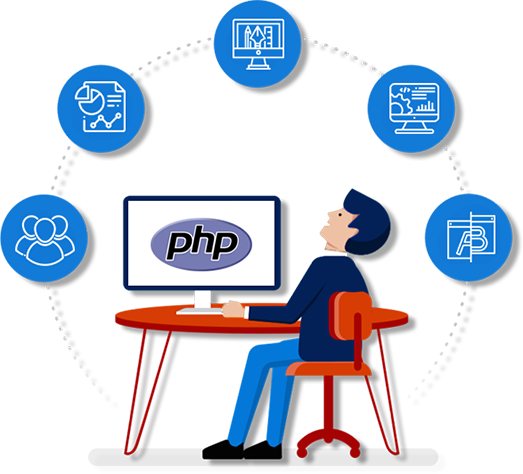Batter Links: Your Gateway to Trending News
Stay updated with the latest trends and insights from around the world.
PHP Development: Crafting Code with a Twist
Unlock the secrets of PHP development! Join us for tips, tricks, and creative twists that will elevate your coding game.
Understanding the Basics of PHP: Your First Steps in Web Development
PHP, or Hypertext Preprocessor, is a versatile server-side scripting language that plays a vital role in web development. It's particularly useful for creating dynamic web pages. To get started with PHP, it's essential to have a basic understanding of how it integrates with HTML, CSS, and JavaScript. For beginners, the official PHP manual is a highly recommended resource that provides detailed explanations and examples of PHP syntax and functions.
Once you grasp the fundamentals, one of the first steps is setting up your development environment. Tools like XAMPP or WAMP can help you run PHP locally. These packages include PHP, MySQL, and Apache, giving you everything you need to run and test your PHP applications. For a comprehensive guide on installation and setup, visit SitePoint's beginner's guide, which offers valuable insights into your first steps with PHP.

10 Common PHP Errors and How to Fix Them
When developing with PHP, encountering errors is a common experience. Here are 10 common PHP errors that you might face, along with effective solutions to fix them. Understanding these errors can save you time and enhance your coding skills. The first error is the Parse error, which occurs during syntax mistakes, such as forgetting a semicolon or a mismatched bracket. To resolve this, carefully check your code for any syntax errors or utilize tools like PHP's official manual for guidance.
Another prevalent issue is the Undefined variable error. This typically happens when you try to use a variable that hasn’t been initialized. To fix this, ensure that all variables are defined before use, or use functions like isset() or empty() to check their state. For more insights, check out this PHP error handling documentation. Addressing these common errors will help create a more robust PHP application and improve your overall coding practices.
How to Optimize Your PHP Code for Better Performance
Optimizing your PHP code is essential for enhancing performance and ensuring that your web applications run smoothly. One of the first steps in this process is to minimize the use of global variables. Global variables can slow down execution time and make your code harder to maintain. Instead, consider using function parameters or class properties. Additionally, implementing caching mechanisms can significantly reduce the load on your server. For more in-depth techniques on optimization, check out this article on SitePoint.
Another effective way to improve the performance of your PHP scripts is to utilize opcode caching. Opcode caching acts as a memory cache, storing compiled versions of your PHP code so that your server doesn't have to recompile it on each request. Tools like OPcache can be easily integrated into your PHP setup. Furthermore, consider implementing database query optimization by using indexing and avoiding SELECT * queries. A comprehensive guide can be found at DigitalOcean, which highlights various strategies to enhance your PHP applications.